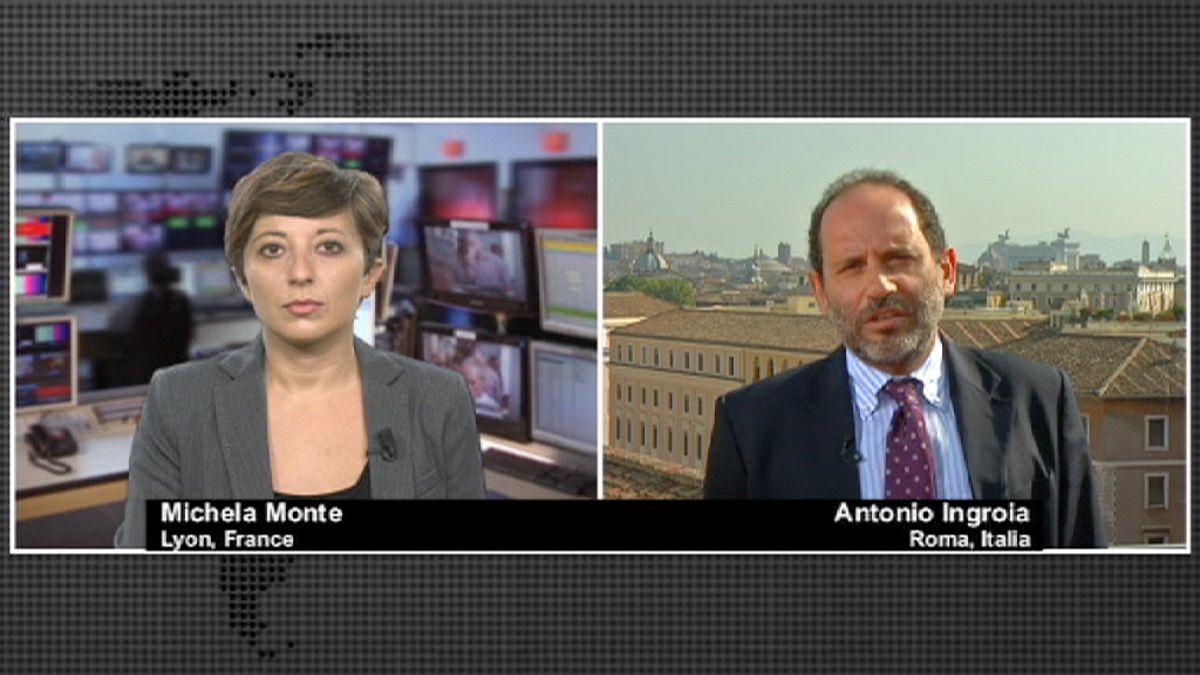Twenty years ago Italians mourned the death of Giovanni Falcone, who fought effectively against the Mafia. But ever since then prosecutors have also been investigating whether the state itself may have been indirectly involved in his death. They suspect members of the establishment struck a secret pact with the same organised criminals who murdered Falcone, in return for a compromised peace.
A pool of anti-mafia investigating magistrates in 1986 managed to mount what was dubbed the ‘Maxi trial’. Hundreds of accused Mafia members were convicted, and Falcone later made sure appeals against their sentences were unsuccessful.
He and his wife and three body guards were killed a few years later. The explosion took out a whole section of Sicilian motorway with the bomb planted under it.
Paolo Borsellino, Falcone’s friend, went on with the work, though the Mafia would retaliate further. If there was a pact, they appeared to feel the establishment had broken it. Borsellino lived only two months more than Falcone. It was a car bombing again, in Palermo.
The crime organisation carried out further sporadic attacks. Rome, Florence and Milan were hit. These attacks claimed a dozen more lives. Many more people were injured. It was to pressure the system to relax the tightened security conditions imposed on the mafia members in prison.
The ‘boss of bosses’, Toto Riina was arrested in 1993, after many years of killing and commanding killings and not being brought to book by the authorities. He kept up the pressure to suspend the hard new approach in Italy’s penitentiaries. Riina was convicted of more than a hundred counts of murder.
Bernardo Provenzano succeeded him at the top of the organisation. He eased off on the bloodshed policy and went about negotiating with competing clans. Constantly evading the police, Provenzano was finally captured in 2006 near his home town, Corleone.
At last investigations moved closer to proving that there may have been a secret pact between the mafia and the authorities: Massimo Ciancimino was the son of a former mayor of Palermo, Vito Ciancimino, the first politician who had been found guilty of working with the Mafia, was arrested in 2006. The son said his father was the go-between in ending the bombing campaign in the 1990s.
Today the state itself is on trial. A senior member of the crime organisation and several public members of the establishment are facing very serious charges.
We spoke to the Deputy Prosecutor of the region of Palermo, Antonio Ingroia, about his four-year investigation into the alleged links between certain Italian authorities and the Mafia.
Michela Monte, euronews:
“Antonio Ingroia, your involvement has led to you being accused of treachery. What’s your response?”
Antonio Ingroia:
“I have received many complaints and this is one of many. The important thing is to have a clear conscience and not to worry; and the tribunal of Palermo has a clear conscience too.”
euronews:
“Let’s talk about the tragic period between 1992 and 1994. More than 20 people were killed in seven attacks. During the same period, anti-mafia judges Giovanni Falcone and Paolo Borsellino were murdered. We saw the death of one political system and the birth of another: the transition to the Berlusconi administration. What is the relationship between these elements?”
Ingroia:
“These killings certainly influenced the beginning of what we describe as the Second Italian Republic, and in between we have discovered – which is the issue in this trial – that there were parts of the state, who were negotiating with criminal organisations, with the Mafia, about a new deal for cohabitation.”
euronews:
“Are these secret talks? Are they still going on?”
Ingroia:
“I would not be surprised to discover that some ‘Mafiosi’ were trying to make new deals and pacts with someone who is currently in the background of Italian politics, but who is bidding to play a role in the next government, following the general election next year.”
euronews:
“Twenty years later, we still do not know the truth about the assassination of judge Paolo Borsellino.
You swore on his grave that you would get to the truth at any cost. But, as the trial begins and we are close to knowing the truth, you are leaving the country. Why have you accepted a new mission in Guatemala?”
Ingroia:
“On the one hand there is a lot that can be learned at the international level about the methods of judges Falcone and Borsellino and of the anti-mafia team working in Palermo. There is a lot of interest in this area. On the other hand I am free to take up this new international opportunity with the UN because the investigation has now finished.”
euronews:
“So you think you have done all that you can in this case?”
Ingroia:
“Although I am free of my role as a prosecutor, I will still participate from Guatemala in this burning debate still going on in Italy, to get to the truth about that period in our history. I will still make my voice heard, even more than before.”
